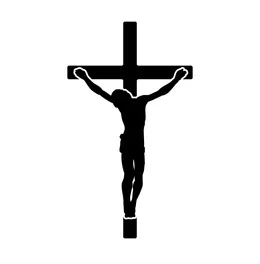24 March Palm Sunday
Opening Reading: Jn. 12. 12-16
Liturgy of the Word: Is. 50. 4-9a; Philippians 2. 5-11; Mk. 15. 1-39 40-end
Theme: Palm Sunday
Today marks the start of Holy Week. That time in the church’s year when we remember the passion, death and resurrection of the Lord. Palm Sunday is a pivotal moment in this celebration of Holy Week as it looks in both directions at the same time. It looks backwards to the triumphant entry of Jesus into Jerusalem and it looks forwards to events of Maundy Thursday, Good Friday and Easter Sunday. It brings together in one celebration all the emotions that will swirl around during this most special time: The joy of the Lord as he enters triumphantly into Jerusalem, the sadness of the betrayal as this welcome will turn into rejection as he is condemned to death, and then again to glorious wonder of his overcoming death in the Resurrection. It really is a season like no other. In fact, the structure of the Christian liturgy has been patterned on this week as we celebrate week in and week out the death and resurrection of the Lord.
When we celebrate this Holy Week it is good for us to realize what it is that we are doing. We are not doing an historical re-enactment of events that happened long ago, as if it was a re-enactment of the battles of the War of the Roses in fifteenth century England, the American Civil War in the eighteenth century or the Spanish civil war in the 1930s. No, when we celebrate the liturgies of Holy Week we are not in the business of historical re-enactment. So, what is the difference? The difference is that in the celebration of the Holy Week and Easter liturgies we are entering into God’s way of being present in time. This divine presence in time unites past, present and future in the eternal now of God. Yes, well before Eckhart Tolle made a lot of money from this idea, this was the understanding of the early Christians who gradually gathered together in their parishes to celebrate the events of the paschal mystery. The time of Jesus was accessed in the here and now of Jerusalem as pilgrims took part in the paschal festivals.
The origin of this season lies in the early centuries of the life of the church. As Christians started to go to Jerusalem on pilgrimage, liturgies were developed to help pilgrims to enter into the drama of the paschal mystery. We have records of these early liturgies from the fourth century and it seems that when pilgrims returned to their own countries they adapted what they had done in Jerusalem to their home circumstances. And, so began the Christian tradition of entering into the passion, death and resurrection of the Lord in this most special time of Holy Week.
The ways in which this week has been celebrated have varied over the centuries but the core has always remained the same. The salvific mission of Jesus to enter into the darkness of sin and death so that these can be embraced in the depths of God and transformed into the new life which is the resurrection. God in Jesus unites himself with all the entropic forces of death and decay and in so doing wins a final victory over the powers and dominions of hell. Yes, in this triumphant entry of Jesus into Jerusalem, cheered by the adoring crowds, we see the first steps of Jesus towards taking his heavenly throne of judgment at the right hand of the Father. The expectations of the crowds waving their palms on this Palm Sunday is for the messiah to liberate them from the oppressive Roman powers. In fact, the scene is constructed by the Gospel writers as an ironic mockery of the Roman imperial pageants as the emperor would triumphantly enter to the city to claim his rightful place as the king. However, in the case of Jesus, he subverts this Roman tradition of triumphant entry into the capital city by entering Jerusalem riding on a simple donkey. As our reading from Philippians puts it, “He humbled himself and became obedient unto death”. This simple entry of Jesus into Jerusalem, so shrouded in glory and celebration will soon turn sour as the true meaning of this entry into Jerusalem will be revealed. The king has indeed returned to rule the city, but it will be a reign like no other, because from now on, God will open the gates of the promised land to all who believe in him and are prepared to share in his sufferings and death.
So, as we enter this Holy Week 2024, let us journey with Jesus through the range of emotions that this season evokes in us. The highs and lows, the joys and the sadness will all be present in what is truly the greatest story ever told. In the name of the Father and of the Son and of the Holy Spirit. Amen.

